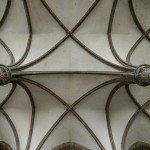
The Benefit of the Doubt
We can neither know nor remember everything. Events take place which very different significance depending on a person’s perspective.
People have a long history of giving each other the benefit of the doubt. Someone is late and says there was an accident on the freeway. We cannot know where there really was an accident, and we give them the benefit of the doubt.
Where there is doubt we give people room to maneuver. We recognize we do not always, or ever, see things completely.
There are times when it feels like there is less and less doubt in the world, and less benefit.
We are apparently less willing to give each other the benefit of the doubt as we argue about politics. There appears to be less benefit of the doubt in general on social media these days.
My experience has taught me a good deal about the benefit of the doubt. The phrase arises out of the legal system. Defendants are entitled to the benefit of the doubt, especially in criminal cases. If the prosecution is not able to prove its case beyond a reasonable doubt the defendant benefits.
When I practiced law as a criminal prosecutor, I would describe how limited reasonable doubt was. My intention was to reduce the benefits to the defendant of any doubt.
We believe doubt is a good thing when we are accused of doing something. When we feel we have been harmed, we are more skeptical about those benefits.
The Benefit of the Doubt and Spiritual Life
Many people who have strong feelings about spiritual life do not see the benefit of doubt.
I know people who believe doubt is a significant weakness. Being convinced and certain are parts of spiritual life for them. They think, if they doubt, they are not as spiritually strong as they should be.
We believe in the power of our convictions. It is important to us to know what we are convinced is true and stand up for what we believe.
Some people see belief as the opposite of doubt. They see us having a choice between doubting and believing.
My experience of spiritual life has been different. I have come to see doubt as an indispensable part of spiritual life. For me, spiritual life is filled with the benefits of doubt.
My doubts tend to grow in the space between what I think should be happening and what does happen. When a person I do not think deserves to succeed does succeed, it sows the seeds of doubt. Things happen which I see as unfair and doubts grow in me.
These doubts are not signs of the weakness of spiritual life in me. I am paying attention and aware of what is going on in the world. My doubts do not necessarily reduce the power of spiritual life.
What is important is how we respond to the doubts which grow in us. If anything, doubt strengthens spiritual life and shows us new ways to apply what we believe.
The world is full of people and events which cause us to ask questions.
Spiritual life is asking questions in us. The ways we respond to those questions strengthens spiritual life.
The Power of Reasonable Doubt
It is difficult for me to agree with people who think doubt is the opposite of belief. I may have even more of a challenge when we do not see doubt as an invitation to explore.
People have told me they just cannot get interested in spiritual life. They describe an issue they have with some particular aspect of spiritual life which stops them.
Some people tell me they would really like to think spiritual life was important. There is one thing they just cannot get past. Maybe something about how they were raised or how someone else has treated them. They might have been told how spiritual life is supposed to work and they cannot let go.
There are people who allow one doubt to become a test they must pass for spiritual life. They do not approach their doubt as an opportunity to see things in a new way.
When I was practicing law, I would remind jurors their doubts needed to be reasonable. The judge would instruct them to use their common sense. I would work hard to convince them.
It was important to me that they see any doubts about my case as not really reasonable.
I understand people who see their doubts as blocking spiritual life think they are being reasonable. They struggle with problems, trying to think their way through them.
The fact is, while spiritual life is reasonable, understanding it is not merely an analytical process. It is possible to overthink spiritual life.
Spiritual life does not require we stop using our intellect, but integrate it with the rest of us.
Giving Ourselves the Benefit of Our Doubt
Spiritual life is not about anyone forcing us to think or believe anything. There is no list of things which we must think or do before spiritual life accepts us.
I know people who hold very different opinions in whom spiritual life is at work.
The doubts we have are not barriers to spiritual life. We do not need to resolve or hide our doubts away before spiritual life can work in us. Spiritual life embraces us, doubts and all.
Doubts are not signals we need to stop what we are doing or stop what we are thinking. They get our attention and focus our exploration.
Doubts are ways in which spiritual life guides and inspires us to keep going. We have no reason to feel guilty or ashamed about our questions. Our doubts help us continue learning new lessons.
Doubts and questions spark our interest in new discoveries. We grow as we continue to give ourselves the benefit of the doubt.
What doubts are drawing us into exploration this week?
How will we give ourselves the benefit of our doubts today?
[Image by dreamsjung]
Greg Richardson is a spiritual life mentor and leadership coach in Southern California. He is a recovering attorney and university professor, and a lay Oblate with New Camaldoli Hermitage near Big Sur, California. Greg’s website is StrategicMonk.com, and his email address is [email protected].












